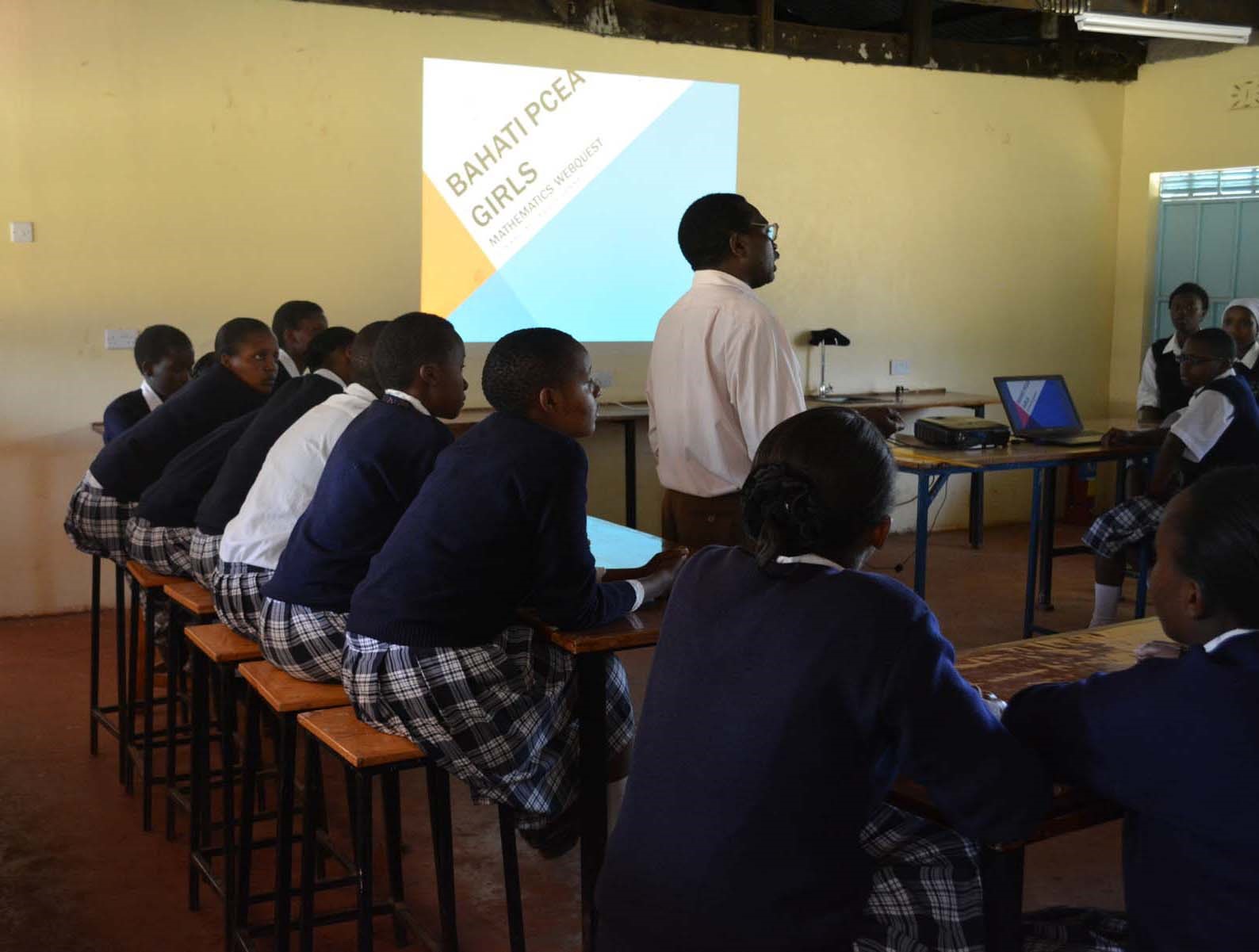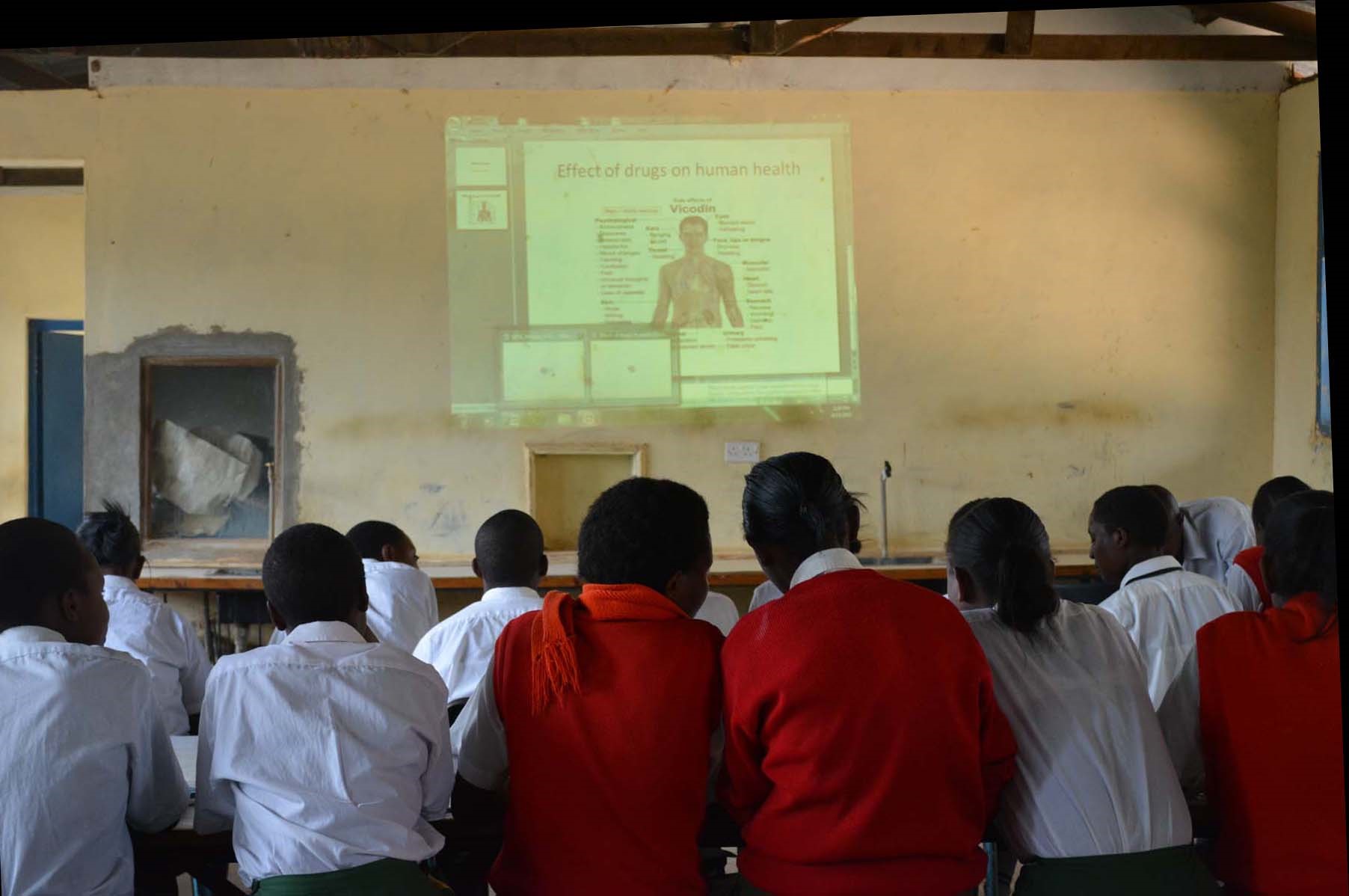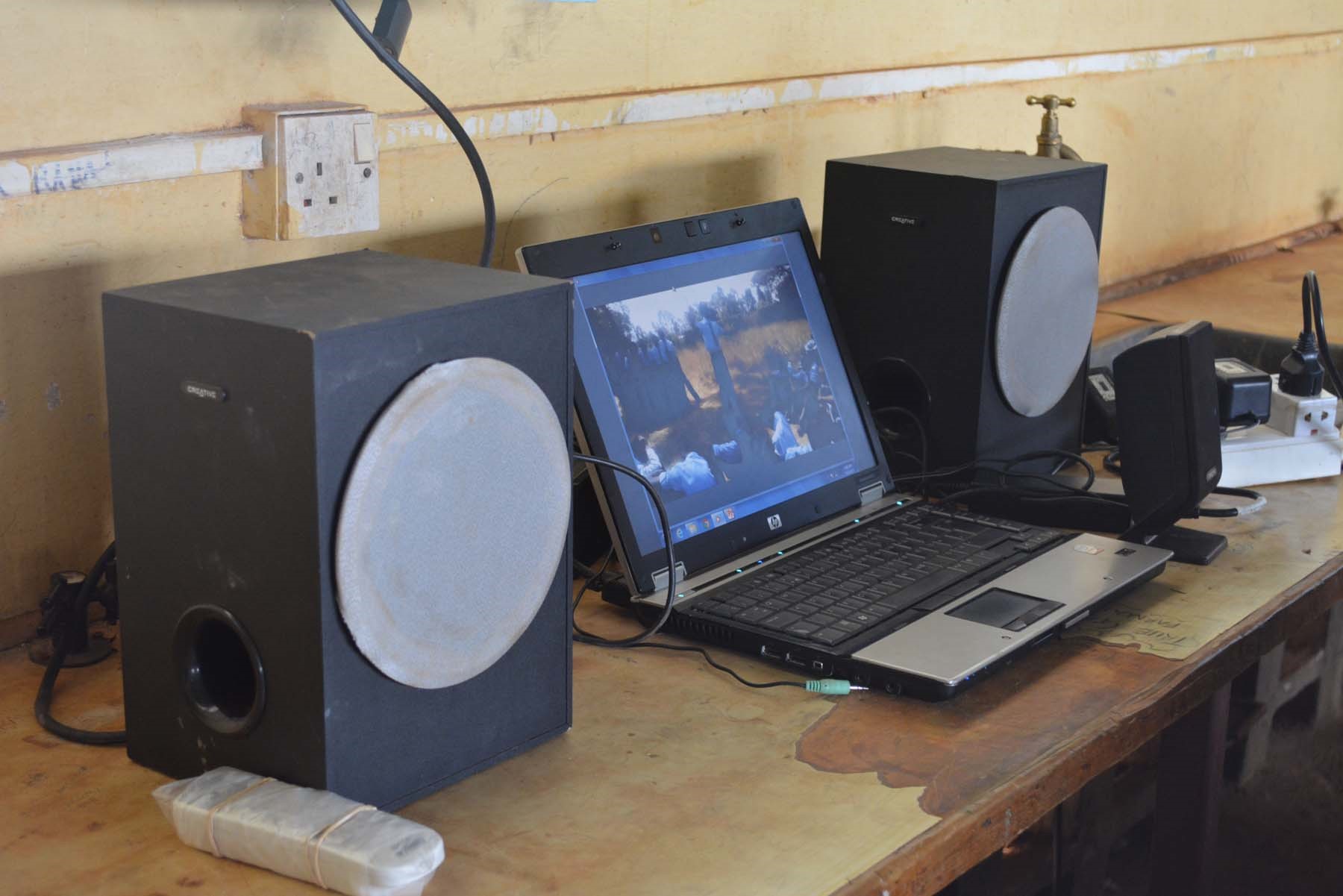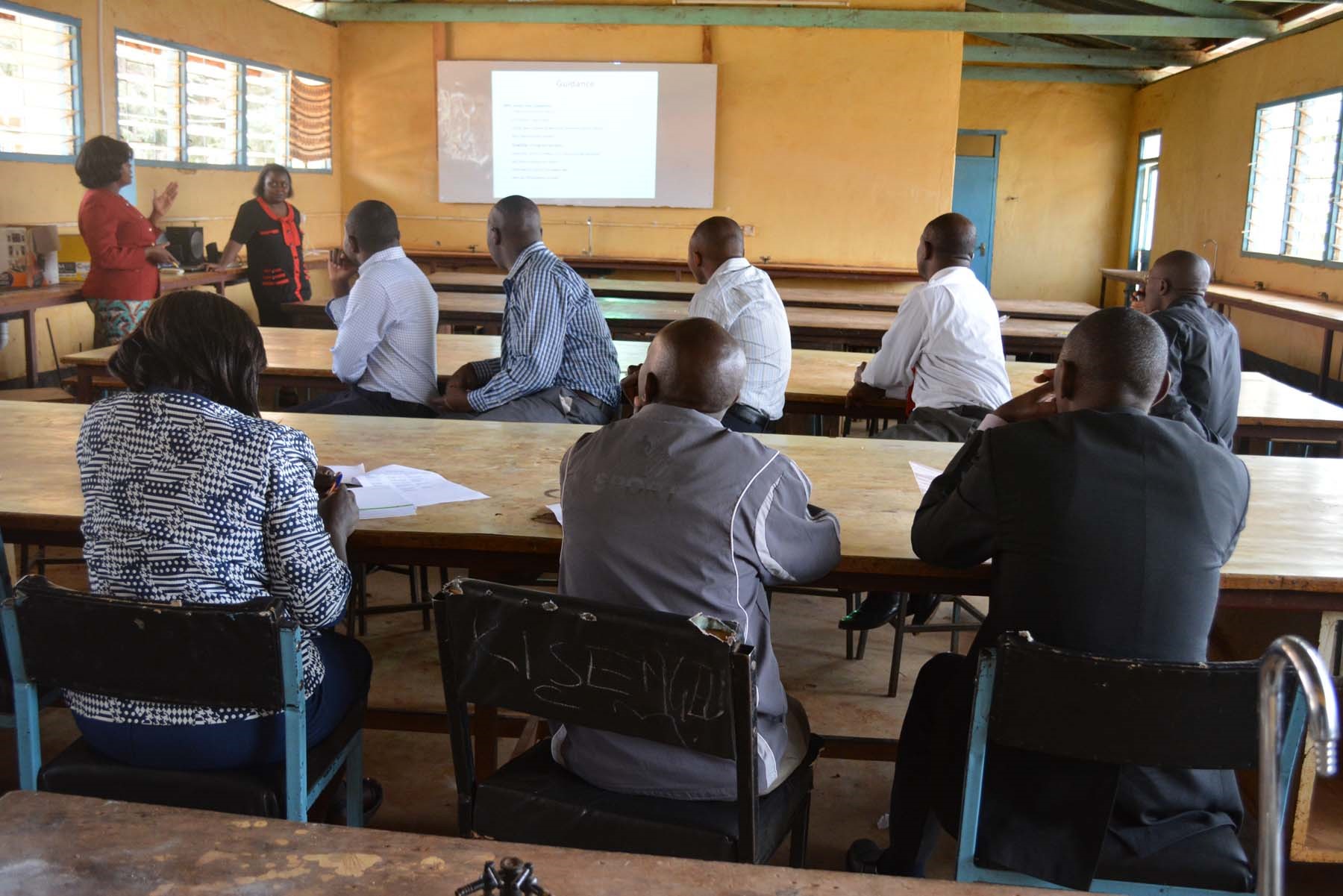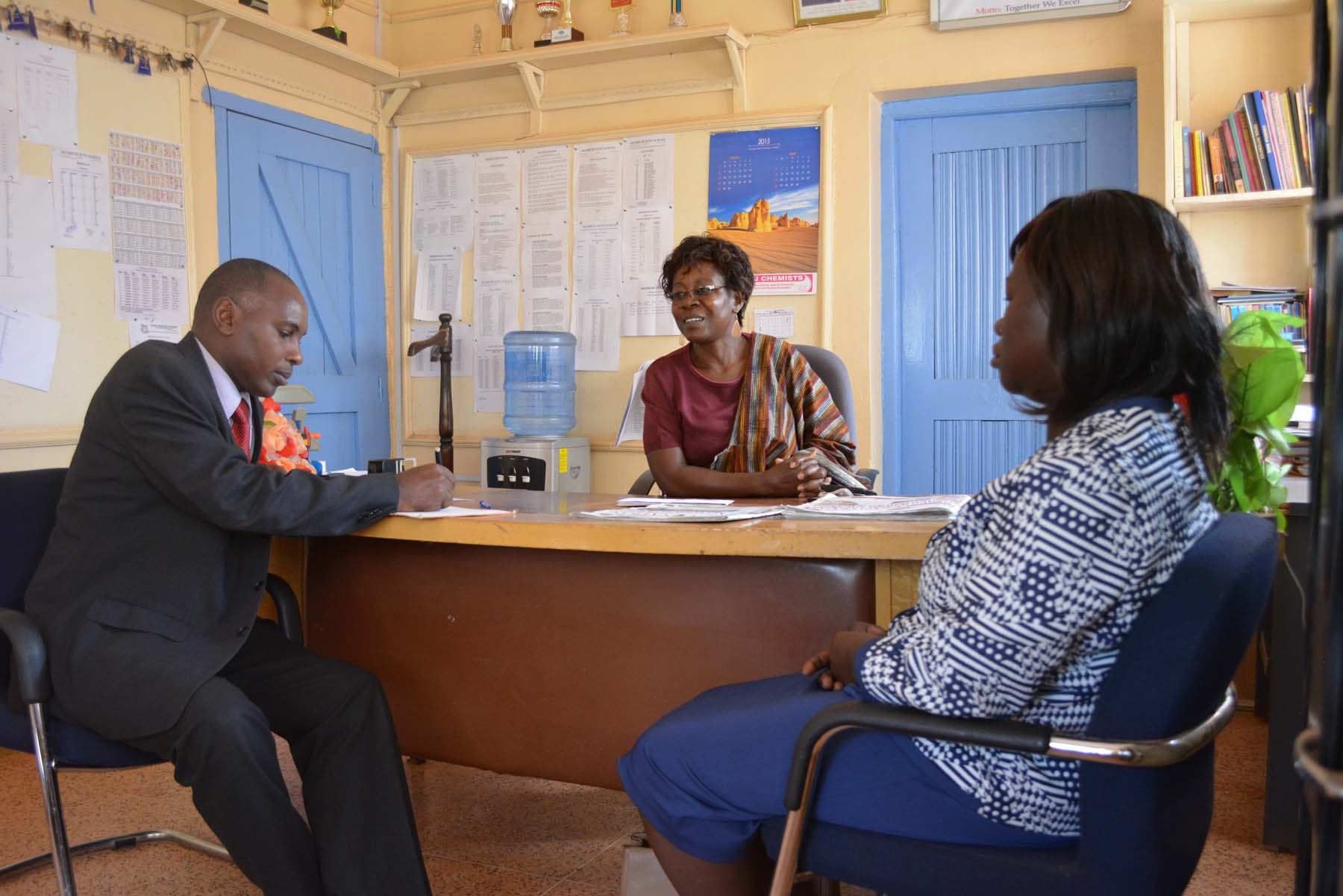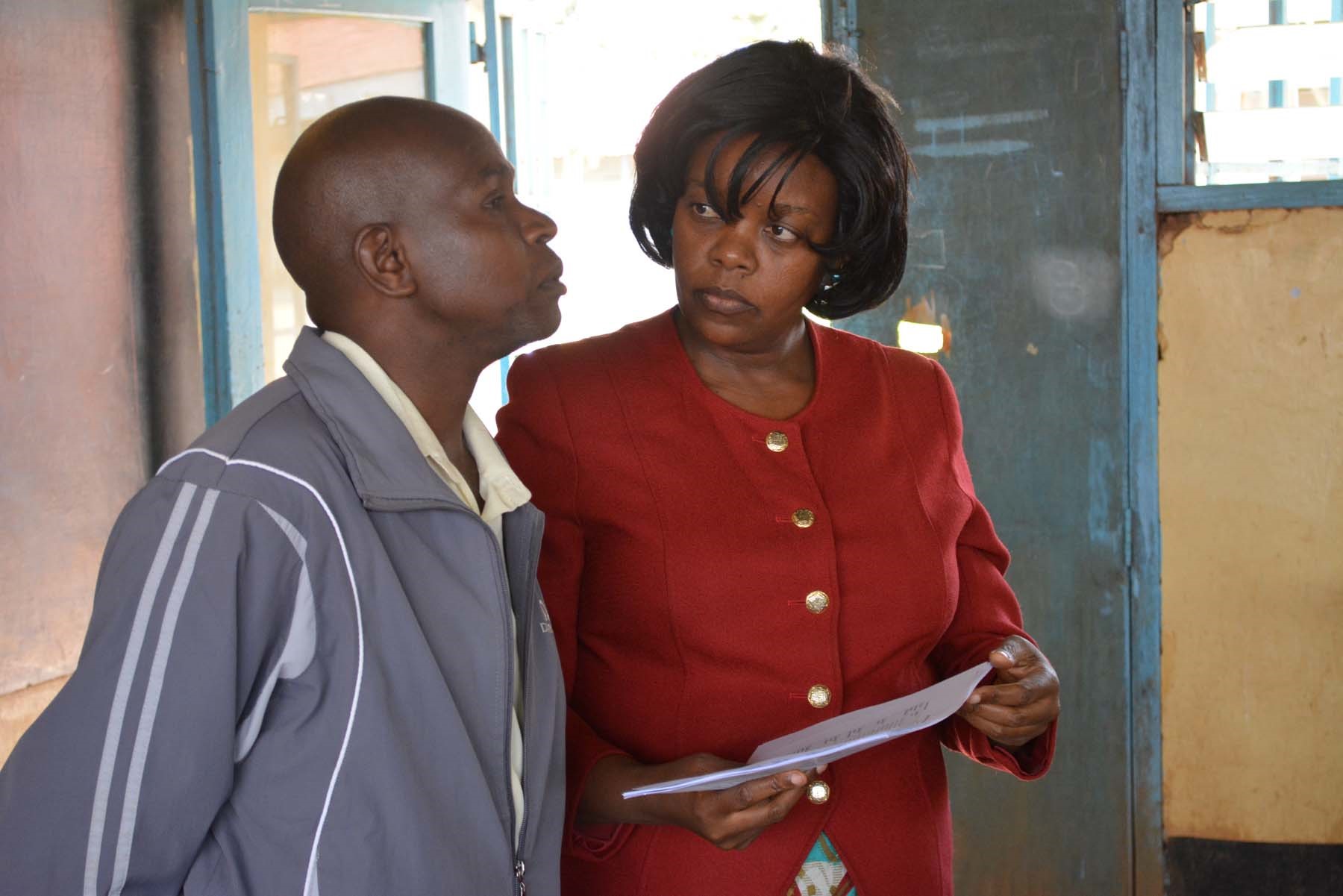SIPSE taking stock of project-based learning in Kenya
The last round of tracking the Partnership to Strengthen Innovation and Practice in Secondary Education (SIPSE) project is in progress. In line with this, a team of two officials from the ICT4E unit in Kenya’s Ministry of Education, Science and Technology (MoEST) and GESCI staff visited secondary schools in Nakuru and Machakos counties on 12th and 13th March 2015 to assess teachers’ progress on SIPSE’s project-based learning.
The government of Kenya has been supporting GESCI activities in implementing the SIPSE project. Martin Kungania from the Ministry of Education, Science and Technology ICT4E department said, “We commend GESCI for complementing government efforts to ensure that ICT is integrated in the teaching and learning process in schools.”
The Global e-Schools and Communities Initiative (GESCI) in collaboration with The MasterCard Foundation and the governments of Kenya and Tanzania came together to spur innovation through the integrated use of technology in teaching and learning at the secondary education level. The SIPSE project was initiated with a goal of improving student performance in the critical subject areas of Science, technology, English and Math (STEM).
The 20 schools participating in the SIPSE project have been working since February 2015 on student-teacher project-based learning in STEM subjects. The team visited a total of 5 schools – Bahati PCEA Girls School, Jomo Kenyatta High School and JM Kariuki Memorial High School in Nakuru county, and Mumbuni Boys High School and Vyulya Girls High School from Machakos county.
During the visits, the students presented their projects, teachers peer-reviewed each other’s projects, and requirements for assessing final teacher submissions were clarified.
Besides taking stock of the student-teacher projects, the visits presented an opportunity for SIPSE project manager Esther Mwiyeria to speak with the teachers and master trainers and to agree on final tasks to be completed by the end of this phase of the project in May 2015.
Teachers and students in the SIPSE programme have been carrying out educational projects in Biology, Math, English, Chemistry, Physics and ICT between 20 February to 27 March 2015. The best projects will be recognized in award ceremonies in Kenya and Tanzania in May 2015

